Gauging the practical effectiveness of a protest song is a far more slippery task than assessing its quality, but the Special AKA's 1984 hit, Nelson Mandela, is one of the few records that can be said to have helped move mountains.
Although it is almost inconceivable now, at the dawn of the 1980s Mandela's name was not widely known outside South Africa. By the time he was released from prison a decade later, his name, face and story were synonymous with the anti-apartheid struggle, and pop music played a major role in that transformation.
The Special AKA's Jerry Dammers first encountered Mandela's name when, in 1983, he attended a concert at Alexandra Palace in London to mark the imprisoned activist's 65th birthday. During the headline set of South African trumpeter Hugh Masekela, the crowd chanted "Free Mandela!"
Since settling in the US in the early 1960s, Masekela and his fellow South African exile (and later wife) Miriam Makeba had worked hard to publicise the injustice in their homeland, helped by the singer and campaigner Harry Belafonte.
Back home, music became an important means of inspiring and unifying the anti-apartheid movement. In 1964, the ANC activist and songwriter Vuyisile Mini went to the gallows singing some of the popular freedom songs he had written.
Some western musicians took an early stand against apartheid. The Musicians' Union, in the UK, declared a boycott after the 1960 Sharpeville massacre, and the Beatles, the Rolling Stones and the Walker Brothers were among those who refused to perform in South Africa.
But compared with Vietnam and the American civil rights movement, apartheid remained a niche interest, even on the left. Gil Scott-Heron's 1976 song Johannesburg was a rare call for solidarity: "They may not get the news, but they need to know we're on their side."
It was Steve Biko, not Mandela, who became the first anti-apartheid icon. When the young leader of the radical black consciousness movement died in police custody in 1977, he inspired songs by the folksinger Tom Paxton, the prog-rock star Peter Hammill, the reggae artists Steel Pulse and Tappa Zukie, and, tardily but most famously, Peter Gabriel.
"Bono called and told me that U2 had learned about apartheid and Africa from the Biko song," Gabriel later said.
That same year, 1980, the UN finally approved a cultural boycott of South Africa, naming Mandela in a resolution for the first time.
The name was important. The ANC had been calling for the release of Mandela and his fellow political prisoners for years. Around the world, numerous petitions had been signed and tributes paid. But public awareness was stuck at a certain level.
In 1982, the 20th anniversary of Mandela's arrest, the ANC's leader-in-exile, Oliver Tambo, decided to relaunch the anti-apartheid campaign by with an increasing focus on Mandela, effectively making him an international celebrity.
Awareness could not be generated overnight, as Mandela later wrily acknowledged in his autobiography: "I am told that when 'Free Mandela' posters went up in London, most young people thought my Christian name was 'Free'."
Dammers came home from Alexandra Palace in July 1983 with an armful of leaflets and an idea for a song. After the bitter demise of the Specials two years earlier, he had convened a new band, the Special AKA.
Their debut album, In the Studio, was a brooding, heavy affair and the song Nelson Mandela (better known by its US title, Free Nelson Mandela) was intended as a "happy ending".
He invited members of the Specials and the Beat to join vocalist Stan Campbell on the chorus to create a mood of joyous solidarity. Produced by Elvis Costello, it was as optimistic as Gabriel's song was solemn.
Tambo's Free Mandela campaign could not have asked for more. The song was embraced by the UN, ANC and black South Africans, who sang it at demonstrations and played it over loudspeakers, even though the record was banned in the country. The chorus was so simple and catchy that anyone could sing it and remember its message.
Dammers put Mandela's face on the front of the sleeve and filled the back with information gleaned from anti-apartheid campaigners.
From then on, the momentum became unstoppable. Dammers founded the British wing of Artists Against Apartheid, which brought him into conflict with Paul Simon over the Graceland album: a bitter row which at least helped raise awareness.
Simultaneously, Bruce Springsteen's guitarist, Steven Van Zandt, became enraged by the willingness of western artist's to play Sun City, a luxurious whites-only enclave in the impoverished black homeland, or "bantustan", of Bophuthatswana. He invited stars such as Bono, Springsteen, Miles Davis and Run-DMC to appear on 1985's single (and subsequent album) Sun City, by Artists United Against Apartheid, which succeeded in stigmatising the resort.
The anti-apartheid movement became one of the decade's causes célèbres. Stevie Wonder released the bluntly titled It's Wrong (Apartheid) and was arrested during a protest outside the South African embassy in Washington DC.
The British reggae singer Eddy Grant recorded Gimme Hope Jo'Anna (Jo'Anna being Johannesburg). Many artists, from the hip-hop group A Tribe Called Quest to the Irish folksinger Christy Moore, continued to honour Biko.
Among school-age listeners in 1986, perhaps the most effective song was Spitting Image's I've Never Met a Nice South African, cleverly placed on the B-side of the No 1 novelty hit The Chicken Song.
Masekela released two instant anthems calling for Mandela's release, Tomorrow and Mandela (Bring Him Back Home), and Makeba wrote Soweto Blues, joining a groundswell of voices that had not existed when they began campaigning more than 20 years earlier.
Predictably, all of these songs fell foul of South African censors, and artists inside the country had to be more subtle. Dan Heymann, a reluctant army conscript, wrote the brutally satirical Weeping for His Band Bright Blue. The censors failed to spot a brief musical reference to Nkosi Sikelel' iAfrika, the banned ANC anthem, and Weeping reached No 1 on the government's own radio station.
The multiracial band Savuka were more direct. Their song Asimbonanga, explicitly dedicated to Mandela, Biko and other activists, led to repeated arrests and raided concerts.
All this activity, and the inspiring example of Live Aid, led to 1988's 70th birthday concert for Mandela at Wembley Arena, conceived by Dammers and the Simple Minds frontman, Jim Kerr, who wrote the well-meaning but windy Mandela Day for the occasion.
African musicians and dedicated campaigners shared the stage with sympathetic superstars on a night that peaked with the iconic trio of songs; Biko, Sun City and Nelson Mandela.
A subsequent survey found that three-quarters of 16- to 24-year-olds now knew who Mandela was and wanted him released: remarkable progress in just a few years.
The follow-up concert to mark Mandela's liberation two years later had the advantage of starring the man himself. He took the stage after dark, greeted by thousands of cigarette lighters and the sound of Nkosi Sikelel' iAfrika, then went straight to the airport to fly home and continue his work.
Dammers learned that Mandela had just one quibble with the Special AKA song. The line about his captors forcing him to wear painfully ill-fitting shoes had been taken from anti-apartheid publicity that turned out to be inaccurate.
It's testament to Mandela's integrity that, even when his own freedom was at stake, he felt that the truth required no embellishment.
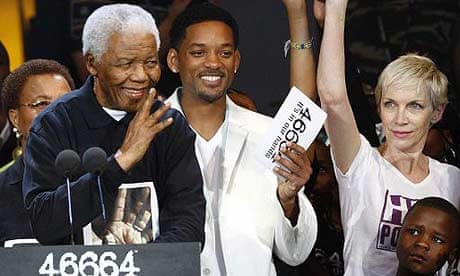


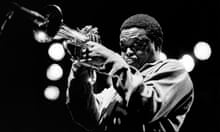
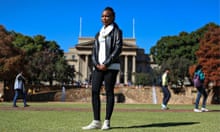
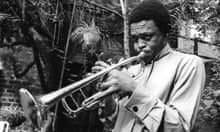

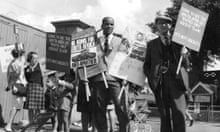
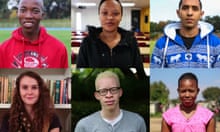


Comments (…)
Sign in or create your Guardian account to join the discussion